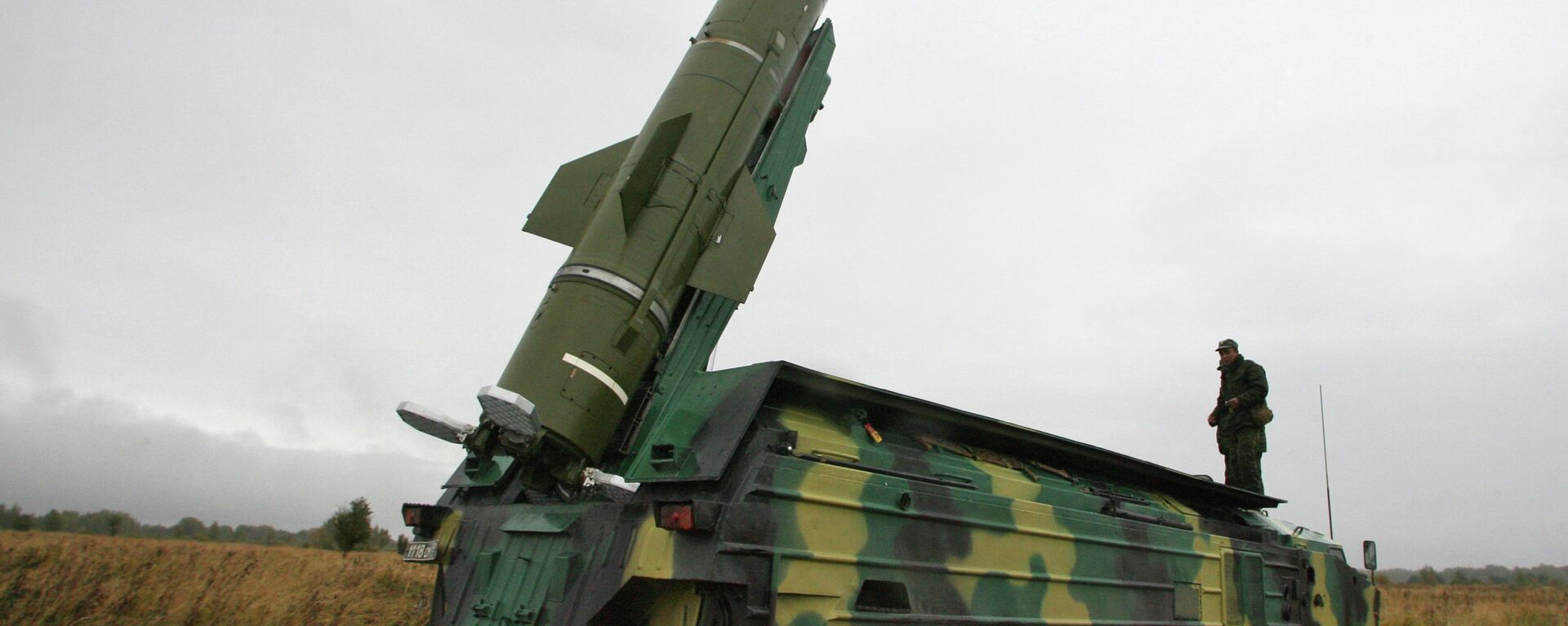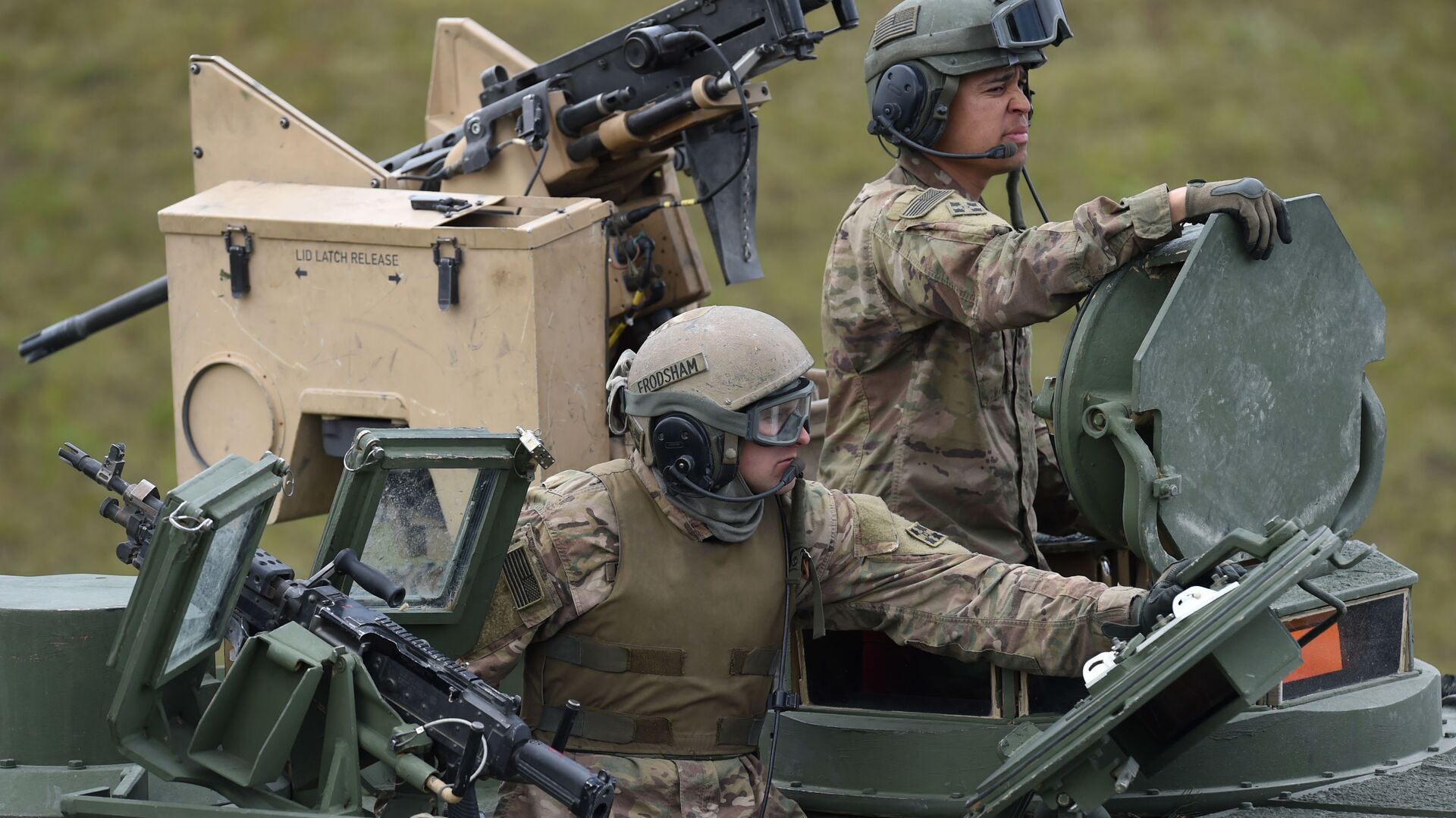https://sputnikglobe.com/20211219/moscows-security-proposals-may-kickstart-dialogue-with-nato-but-will-require-flexibility---experts-1091651220.html
Moscow's Security Proposals May Kickstart Dialogue With NATO, But Will Require Flexibility - Experts
Moscow's Security Proposals May Kickstart Dialogue With NATO, But Will Require Flexibility - Experts
Sputnik International
Russia's proposed security guarantees may serve as a starting point for further negotiations with NATO, provided there is flexibility on Moscow's part, some experts believe.
2021-12-19T17:49+0000
2021-12-19T17:49+0000
2023-01-08T16:49+0000
opinion
us
russia
analysis
nato
https://cdn1.img.sputnikglobe.com/img/107957/10/1079571024_0:143:3135:1906_1920x0_80_0_0_7cca481c48c55c5af8c969d002be86c7.jpg
On Friday, Moscow presented draft agreements between Russia, the United States and NATO on security guarantees, which, if agreed to, would preclude NATO from expanding in Eastern Europe and prevent the US and Russia from deploying intermediate and shorter-range missiles within striking distance of each other's territory, among other things. According to German Foreign Minister Christine Lambrecht, the alliance will discuss them next week.Speaking to the SolovyovLive show on YouTube on Saturday, Russian Deputy Foreign Minister Alexander Grushko stated that the proposals aimed at engaging in a "normal" dialogue with NATO, with security interests put right in the centre of the discussion.If that is indeed so, the drafts may yet facilitate exactly this kind of conversation between the two sides, Noah Mayhew, a research associate at the Vienna Center for Disarmament and Non-Proliferation (VCDNP), thinks.The expert went on to say that the US is unlikely to accept the provisions that ban NATO expansion, suggesting that the drafters were likely aware of that. He also commented on the provision, which states that the sides "shall not strengthen their security, within international organizations, military alliances or coalitions at the expense of the security of other parties," saying its meaning is unclear and is likely to raise questions within the alliance.Mayhew noted that the provisions on banning deployment of missiles had potential for dialogue, even though the past experience with the Intermediate-Range Nuclear Forces Treaty is not all that encouraging."Regardless, it may still be a good place to start. That said, these provisions are not given in isolation – disagreement on Articles 6 and 7 [on NATO expansion] are likely to sink the prospect of reaching agreement regardless of any other provisions," Mayhew added.His thoughts are echoed by Clyde Prestowitz, who served as a counsellor to the US secretary of commerce in the Ronald Reagan administration. The expert said that Washington will not agree to all provisions, but did not rule out a tacit deal not to expand the alliance."A lot depends on how rigid these Russian demands are. If these are starting points for talks, then, yes, there might be room to talk and even to reach some agreement. But if these are rigid demands, then there is no chance," Prestowitz said.Both experts were convinced that some kind of agreement between Russia and NATO would be a net positive for global security, but did not think that Moscow's proposals would bring that about."It is my view that the draft agreement as written is a non-starter for NATO. If the document is negotiated and agreement is not reached, or if NATO countries decline to negotiate altogether, we will have more of the same," Mayhew said in his assessment.Meanwhile, the Reagan alumni suggested that as the world is concerned with potential armed conflicts involving Ukraine and Taiwan, it would be useful to remove at least one point of tension."I myself can understand some of the Russian concerns. If there is flexibility on the Moscow side, a deal may be possible," Prestowitz concluded.
https://sputnikglobe.com/20211218/moscow-if-us-rejects-security-proposals-russia-will-be-forced-to-create-counterthreats-1091631658.html
Sputnik International
feedback@sputniknews.com
+74956456601
MIA „Rossiya Segodnya“
2021
Sputnik International
feedback@sputniknews.com
+74956456601
MIA „Rossiya Segodnya“
News
en_EN
Sputnik International
feedback@sputniknews.com
+74956456601
MIA „Rossiya Segodnya“
Sputnik International
feedback@sputniknews.com
+74956456601
MIA „Rossiya Segodnya“
moscow, russia, nato, us
Moscow's Security Proposals May Kickstart Dialogue With NATO, But Will Require Flexibility - Experts
17:49 GMT 19.12.2021 (Updated: 16:49 GMT 08.01.2023) MOSCOW (Sputnik) - Russia's proposed security guarantees may serve as a starting point for further negotiations with NATO, provided there is flexibility on Moscow's part, but will never be accepted by the alliance the way they are now, some experts believe.
On Friday, Moscow presented draft agreements between Russia, the United States and NATO on security guarantees, which, if agreed to, would preclude NATO from expanding in Eastern Europe and prevent the US and Russia from deploying intermediate and shorter-range missiles within striking distance of each other's territory, among other things. According to German Foreign Minister Christine Lambrecht, the alliance will discuss them next week.
Speaking to the SolovyovLive show on YouTube on Saturday, Russian Deputy Foreign Minister Alexander Grushko stated that the proposals aimed at engaging in a "normal" dialogue with NATO, with security interests put right in the centre of the discussion.
If that is indeed so, the drafts may yet facilitate exactly this kind of conversation between the two sides, Noah Mayhew, a research associate at the Vienna Center for Disarmament and Non-Proliferation (VCDNP), thinks.
"The success of this endeavour depends on the intent behind this document. If the intent is to provide a starting point for negotiations, this draft could serve that purpose. However, if the intent is to table a take-it-or-leave-it deal or simply engage in virtue signalling, this is unlikely to be successful," Mayhew said.
The expert went on to say that the US is unlikely to accept the provisions that ban NATO expansion, suggesting that the drafters were likely aware of that. He also commented on the provision, which states that the sides "shall not strengthen their security, within international organizations, military alliances or coalitions at the expense of the security of other parties," saying its meaning is unclear and is likely to raise questions within the alliance.
Mayhew noted that the provisions on banning deployment of missiles had potential for dialogue, even though the past experience with the Intermediate-Range Nuclear Forces Treaty is not all that encouraging.
"Regardless, it may still be a good place to start. That said, these provisions are not given in isolation – disagreement on Articles 6 and 7 [on NATO expansion] are likely to sink the prospect of reaching agreement regardless of any other provisions," Mayhew added.

18 December 2021, 18:26 GMT
His thoughts are echoed by Clyde Prestowitz, who served as a counsellor to the US secretary of commerce in the Ronald Reagan administration. The expert said that Washington will not agree to all provisions, but did not rule out a tacit deal not to expand the alliance.
"A lot depends on how rigid these Russian demands are. If these are starting points for talks, then, yes, there might be room to talk and even to reach some agreement. But if these are rigid demands, then there is no chance," Prestowitz said.
Both experts were convinced that some kind of agreement between Russia and NATO would be a net positive for global security, but did not think that Moscow's proposals would bring that about.
"It is my view that the draft agreement as written is a non-starter for NATO. If the document is negotiated and agreement is not reached, or if NATO countries decline to negotiate altogether, we will have more of the same," Mayhew said in his assessment.
Meanwhile, the Reagan alumni suggested that as the world is concerned with potential armed conflicts involving Ukraine and Taiwan, it would be useful to remove at least one point of tension.
"I myself can understand some of the Russian concerns. If there is flexibility on the Moscow side, a deal may be possible," Prestowitz concluded.



